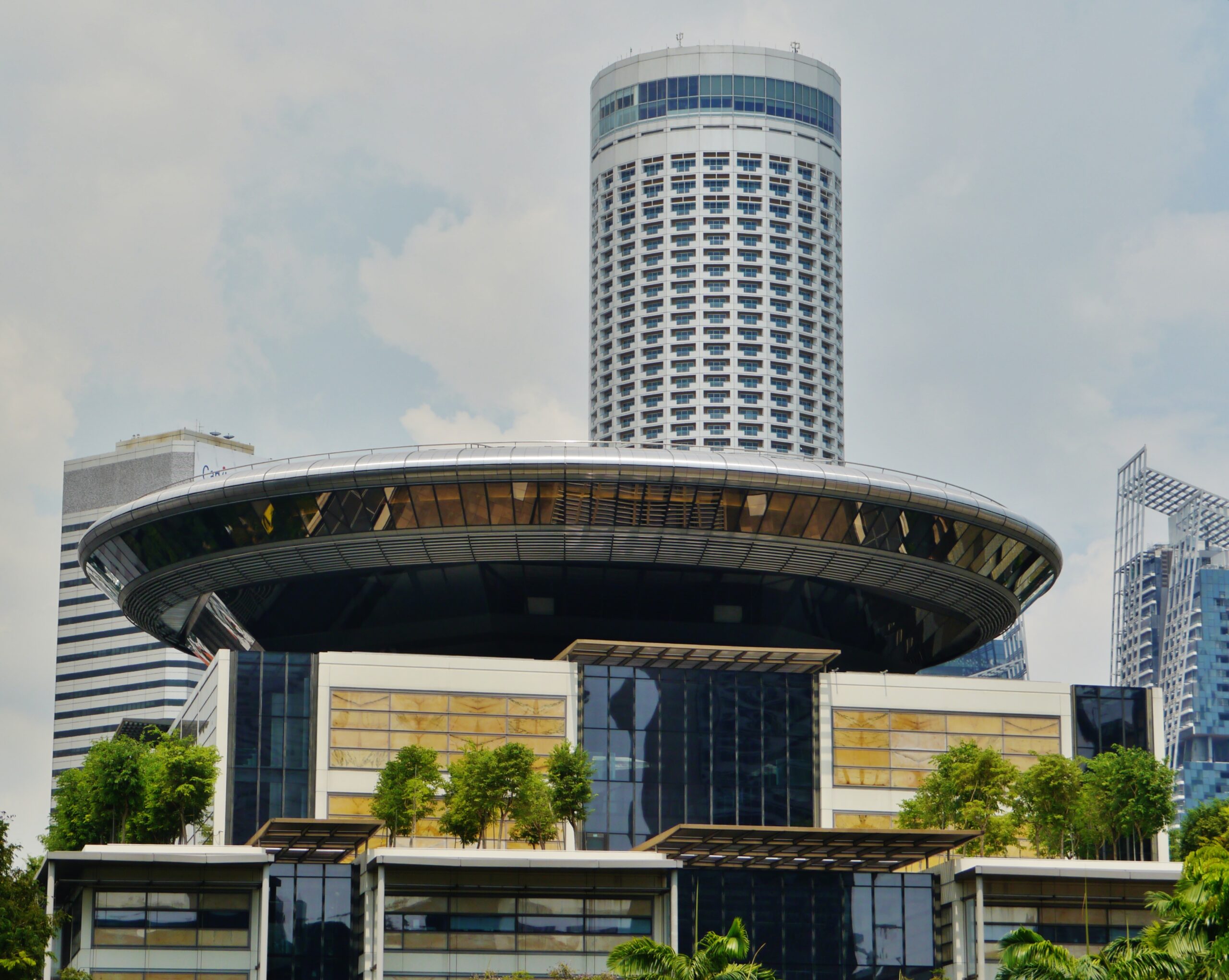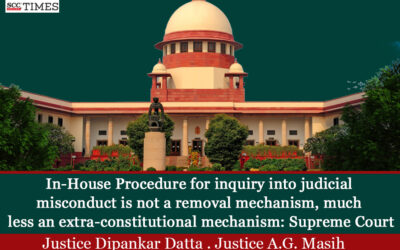Whether Reproducing Material from Unattributed External Sources in an Arbitral Award Amounts to Breach of Natural Justice? – Ananya Pratap Singh

Singapore Court of Appeal: Whether Reproducing Material from Unattributed External Sources in an Arbitral Award Amounts to Breach of Natural Justice?
In DJP V Djo [2025] SGCA(I) 2, the Singapore Court of Appeal each other decided the issue of whether reproducing material from unattributed external sources such as awards passed in other arbitrations between same parties presided by common arbitrator amounts to breach of natural justice necessitating setting aside of the award. In passing its judgment, the Singapore Court of Appeal dealt with various aspects such as apprehension of prejudgment by arbitrator, apparent bias, confirmation bias, right to fair hearing of parties and rules of natural justice.
Factual Matrix
In the facts of the case, the Appellant was awarded contract which it sub-contracted to the Respondent. Certain disputes arose between the parties in respect of change in legislation and the Appellant commenced arbitration in Singapore under the aegis of Rules of Arbitration of the ICC (‘ICC Arbitration’). The underlying contract was governed by Indian law.
Accordingly, a three-member tribunal was constituted. The Tribunal held in favour of Appellant holding that there was indeed change in legislation and the Respondent was made liable to pay additional payment basis change in such legislation (‘ICC Award’).
Pertinently, there were two other arbitrations which were running in parallel between the same parties and in respect of similar claims (‘Parallel Arbitrations’). The President in the three arbitrations were same while the Co-arbitrators were different. In those arbitrations as well, the awards were passed substantially against the Respondent.
There were glaring similarities in all three arbitrations in terms of reliefs sought and issues raised. However, in terms of differences, the administering arbitral institutes and seat of arbitration were different in the other two Parallel Arbitrations (seated in New Delhi and administered under rules of Arbitration of the International Centre for Dispute Resolution, New Delhi). Further the arguments raised in respect of Appellant’s claims being time barred and waiver of right by Appellant were raised only in the ICC Arbitration by the Respondent and not in the Parallel Arbitrations. The underlying contracts in the Parallel Arbitrations though were substantially similar to the one in ICC Arbitration but they were amended differently in certain aspects. There were also differences regarding notification of claim by Appellant and notification of claim by other parties in Parallel Arbitrations to the Respondent.
Singapore High Court
The Respondent applied to the Singapore High Court seeking setting aside of the ICC Award each other on the ground that the Tribunal has acted in breach of natural justice under Section 24(b) of the International Arbitration Act 1994 (‘IAA’). The Singapore High Court set aside the ICC Award on the ground that the Award was rendered in breach of the rules of natural justice.
According to High Court there were atleast 04 problems in the Award. Firstly, Tribunal had failed to restrict itself to submissions made in the ICC Arbitration as the Award contained verbatim reproductions of submissions made in Parallel Arbitrations. Secondly, there were authorities referred to in the ICC Award that were not cited by the parties or put to them for their consideration and submissions. Thirdly, the Tribunal considered incorrect versions of clauses in the ICC Award taking the ones which were referred in one of the Parallel arbitrations. Fourthly, Tribunal applied Indian Arbitration Act in awarding interest and costs whereas the ICC Arbitration was seated in Singapore and therefore, Singapore IAA should have been applied for computation.
Due to these reasons, the allegation of prejudgment giving rise to an assertion of apparent bias was made out against the President who was common in all three arbitrations. It was alleged that the President had prejudged the ICC Arbitration to the extent and in the sense that he allowed, or at least appeared to have allowed, his accumulated knowledge from the Parallel Arbitrations to influence his decision in ICC Arbitration. According to High Court this amounted to breach of the rule against bias. The decision of the High Court was appealed before the Singapore Court of Appeal in the present proceedings.
Singapore Court of Appeal
Before the Court of Appeal, the Appellant argued that arbitral tribunal had not adopted material from the Parallel Awards in an unthinking or injudicious manner and to the extent the material was copied, it was done as a “short cut” to preparing the ICC Award which did not compromise the integrity of the ICC Arbitration in any meaningful way. Alternatively, Appellant’s contended that only those part of the ICC Award which is tainted by breach of natural justice should be set aside, with the affected issues remitted to the Tribunal for it to determine them afresh.
Per againstthe Respondent argued that a fair-minded and appropriately informed observer would undoubtedly, and quite reasonably, suspect that the Tribunal did not approach the ICC Arbitration with a fair and open mind. According to Respondent, the material referred to by the Tribunal was outside the scope of ICC Arbitration, the common issues were decided in exactly similar manner, with analysis being copy pasted from Parallel Arbitrations. The Respondent accordingly submitted that the ICC Award was correctly set aside in its entirety for having been made in breach of natural justice.
Observations
The issue before the Court of Appeal was whether the Tribunal was in breach of natural justice while passing the ICC Award.
The Court of Appeal observed that the allegation against the tribunal is whether the Tribunal acting through President has prejudged the dispute by copying material from Parallel Arbitrations. According to the Court of Appeal to determine this issue, the question to be answered is whether a fair-minded and informed observer of the public would, having considered all the facts andcircumstances of the case, reasonably suspect or apprehend that thedecision-maker had reached a final and conclusive decision, or might bepredisposed to a given view, before being made aware of all relevant evidenceand arguments that the parties wished to present.
The Court of Appeal also highlighted that fair hearing rule has further two applications i.e., an adjudicator must properly apply his or her mind to the issues and arguments which are live in the dispute and the submissions and evidence adduced by the parties; and an adjudicator must not decide the case on a basis that was neither submitted nor contemplated by the parties without, at least, giving them the opportunity to consider the point and to make their submissions upon it.
The Court of Appeal further observed that where material is copied from an award issued by a differently constituted tribunalor in an arbitration involving different partiesdistinct concerns may arise. Given that only the parties and the arbitrators who are also involved in the related arbitration would have access to the award from which material was copied or reproduced, there may be concerns that the relevant arbitration had been decided on the basis of material that was: (a) not equally accessible to all relevant parties and/or arbitrators; and therefore (b) not equally considered by the same. According to Court of Appeal, this asymmetry of information between the parties or the arbitrators undermines the expectation of equality in the arbitral process and risks jeopardising the integrity of the arbitration.
In Court of Appeal’s opinion where parties do not have equal access to any relevant material that may bear on the outcome of the dispute as well as an equal opportunity to comment on the same and where it is shown that a tribunal has arrived at its decision by relying on material that the parties have not had access to, then subject to considerations of materiality and prejudice this would presumptively constitute a breach of the fair hearing rule of natural justice.
By an extension, the Court of Appeal observed that each arbitrator should also be equally placed to have the same access to the details of the dispute at hand and of the material on the basis of which, they are to resolve it. As per Court of Appeal, the expectation of equality is undermined where there is a material asymmetry of information not only between the tribunal and the parties, but also as between the tribunal members themselves.
Conclusions
On the basis of the above observations, the Court of Appeal concluded that in the present case, a fair-minded and informed observer would, after considering all the relevant facts and circumstances, will reasonably apprehend or harbour the suspicion that by reason of what the President had done, he was materially influenced by the earlier decisions that he had been party to in the Parallel Arbitrations.
The Court of Appeal based its decision on following four points:-
- There were several material differences between the Three Arbitrations, yet the Parallel Arbitrations Awards were used as templates in drafting the ICC Award to a very substantial degree. With this, a fair-minded observer would be left with the reasonable apprehension or suspicion that the Tribunal’s decision was improperly influenced by a degree of anchoring bias, which refers to the unconscious tendency to rely on a conclusion earlier made without regard to new information and fresh analysis. Such a decision would also appear to be plagued by a confirmation bias, referring to the difficulty of persuading a decision-maker that has come to an initial view to then change its view.
- A substantial portion of the relevant analysis featured in similar terms across the three Awards, despite the fact that slightly different arguments had been raised by the respondent in the Arbitration.
- Even analysis of the fresh arguments raised by the respondent in the ICC Arbitration were mostly interposed between paragraphs that were reproduced from the Parallel Arbitrations Awards which would have given rise to the reasonable impression or concern that the fresh arguments might not have been considered by an open mind.
- There were many errors in the ICC Award arising from the approach that was taken to producing it from the Parallel Arbitration Awards.
Accordingly, the Court of Appeal concluded that ICC Award was correctly set aside by the High Court for being made in breach of the rules of natural justice.

